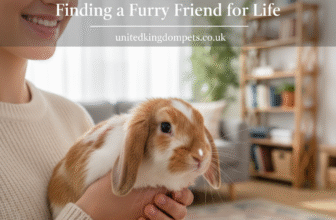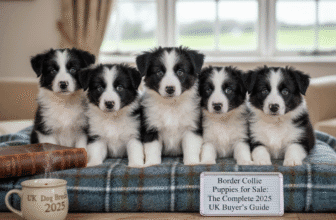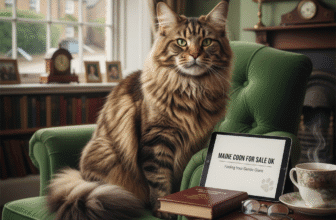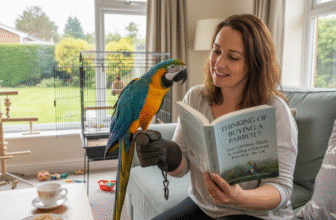
British Shorthair for Sale UK: The Ultimate 2025 Guide to Finding Your Perfect Feline Friend
There’s a certain magic to the British Shorthair. With their plush, dense coats, round “Cheshire Cat” faces, and tranquil nature, it’s no wonder they’ve captured the hearts of cat lovers across the United Kingdom. If you’ve found yourself typing “British Shorthair for sale” into a search engine, you’re on the cusp of welcoming a truly remarkable companion into your life. But this journey is more than just a simple purchase; it’s about responsibly finding a healthy, well-socialised kitten that will be a cherished family member for years to come.
This comprehensive guide is designed to navigate you through the entire process in the UK. We’ll delve into why this breed is so beloved, how to distinguish a reputable breeder from a risky seller, understand the true costs involved, and prepare your home for your chunky, charming new arrival. Let’s embark on the wonderful journey of finding your perfect British Shorthair.
Why Choose a British Shorthair? The Enduring Appeal of the Nation’s Favourite
Before we explore the ‘how’ of buying a British Shorthair, it’s worth celebrating the ‘why’. Their popularity isn’t just a fleeting trend; it’s built on a foundation of delightful characteristics that make them ideal pets for many households.

A Calm and Cuddly Temperament
Often described as the “teddy bear” of the cat world, the British Shorthair has a personality to match its cuddly appearance. They are placid, easy-going, and remarkably patient, making them fantastic companions for families with children and other pets. Unlike some more demanding breeds, they are not prone to bouts of hyperactivity. They are affectionate and enjoy a good stroke and a warm lap, but they aren’t overly clingy. They possess a dignified independence, happy to amuse themselves while you’re busy, but always ready for a gentle fuss when you’re free. This balanced nature makes them perfect for modern living.
Iconic and Handsome Looks
The image most people conjure is the ‘British Blue’ – a solid, blue-grey cat with striking copper or orange eyes. This classic look is undeniably stunning, but the breed comes in a breathtaking array of over 30 colours and patterns. From snowy whites and creamy lilacs to rich chocolates and cinnamons, there’s a shade for every preference. You’ll also find them in beautiful patterns like tabby (classic, mackerel, and spotted), colourpoint (with darker ‘points’ on the ears, face, paws, and tail, similar to a Siamese), and bi-colour varieties. Whatever their coat, they all share the same cobby, powerful body, round head, and chubby-cheeked expression that is quintessentially British Shorthair.
Low-Maintenance Grooming
Their coat, while incredibly dense, is wonderfully low-maintenance. It doesn’t tangle or mat easily, meaning a good brush once or twice a week is usually sufficient to remove loose hair and keep their coat in pristine condition. This is a significant advantage over long-haired breeds that require daily grooming to prevent painful knots.
Robust Health and Longevity
The British Shorthair is generally a very healthy and hardy breed, with a lifespan often reaching 15 to 20 years. Their sturdy build and diverse genetic background have protected them from many of the issues that plague more specialised breeds. However, like all pedigrees, they can be prone to certain genetic conditions, which is a key reason why choosing a responsible breeder is so vitally important.
Finding a British Shorthair for Sale: The Responsible Route vs. The Red Flags
This is the most critical part of your journey. Your experience, and your kitten’s future health and happiness, depend entirely on where you source them from. In the UK, the ethical choice is clear: go through a reputable, registered breeder or consider a breed-specific rescue.
The Gold Standard: Reputable, Registered Breeders
A reputable breeder is more than just someone who has kittens for sale; they are a custodian of the breed. They are passionate about improving its health, temperament, and conformity to the breed standard. Here’s what sets them apart:
- Registration: They will be registered with a recognised governing body, most commonly the Governing Council of the Cat Fancy (GCCF) or, less frequently in the UK, The International Cat Association (TICA). This isn’t just a piece of paper; it means they agree to abide by a strict code of ethics regarding the health and welfare of their cats.
- Health Testing: Responsible breeders will genetically test their breeding cats (the King and Queen) for known hereditary conditions. For British Shorthairs, the two most important tests are for Hypertrophic Cardiomyopathy (HCM), a heart condition, and Polycystic Kidney Disease (PKD). Ask to see the certificates for the parent cats – a good breeder will be proud to show you.
- Raised in the Home: Their kittens are raised underfoot in a clean, stimulating home environment. They are handled daily and are well-socialised with people, household noises, and often other pets. This early socialisation is crucial for developing a confident, friendly adult cat.
- They Interview You: A great breeder cares deeply about where their kittens go. They will ask you lots of questions about your home, your lifestyle, your family, and your experience with cats. Don’t be offended; this is a sign that they are a responsible and caring individual.
- Patience is Key: Kittens will not be allowed to leave their mother until they are at least 13 weeks old. This time is vital for them to learn social skills from their mum and littermates, be fully weaned, and complete their initial course of vaccinations.
You can find reputable breeders through the official GCCF breeder scheme list, by contacting specific British Shorthair breed clubs, or by visiting GCCF-sanctioned cat shows and speaking to exhibitors.
Red Flags to Watch Out For
Unfortunately, the high demand for these kittens has led to a rise in unethical “backyard breeders” and cruel kitten farms. Learning to spot the warning signs can save you from immense heartache and expense.
- Selling Too Young: Any advert offering kittens under 12 weeks old is a major red flag. This is often done to minimise costs and maximise profit, at the expense of the kitten’s health and development.
- “Bargain” Prices: If a price seems too good to be true, it almost certainly is. The costs of ethical breeding (health tests, quality food, vet care, registration) mean that a well-bred kitten will never be ‘cheap’.
- No Mum in Sight: You must always be able to see the kittens interacting with their mother in her home environment. Excuses like “she’s at the vet” or “she’s too stressed” are often used to hide the fact that the mother is not present or is kept in poor conditions.
- Meeting in Car Parks or Deliveries: A breeder should never offer to deliver a kitten to you or meet you in a neutral location like a service station. This is a classic tactic to prevent you from seeing the poor conditions the kittens are raised in.
- No Paperwork or Vaccinations: A kitten from a registered breeder will come with GCCF/TICA registration papers, a full vaccination record from a vet, and a microchip certificate. A lack of these documents is a sign of a disreputable seller.
- High-Pressure Sales: If you feel rushed or pressured into making a deposit or taking a kitten home immediately, walk away. A good breeder wants you to be sure of your decision.
The Cost of a British Shorthair Kitten in the UK (2025)
Understanding the financial commitment is crucial. While prices can vary based on location, pedigree, and colour, you should expect to pay between £900 and £1,500 for a pet-quality British Shorthair kitten from a reputable, GCCF-registered breeder in 2025. Show-quality kittens or those with rare colourings may cost more.
What Does This Price Typically Include?
- The Kitten: A healthy, well-socialised kitten from health-tested parents.
- GCCF Registration: Official paperwork proving their pedigree. Note that pet kittens will be placed on the ‘non-active’ register, meaning they cannot be used for breeding.
- Full Course of Vaccinations: Usually against Feline Influenza, Enteritis, and Leukaemia.
- Veterinary Health Checks: The kitten will have been checked by a vet at least twice.
- Microchipping: As is now law in the UK.
- Flea and Worming Treatment: A complete, up-to-date course.
- A Kitten Pack: This often includes a supply of the food they are currently eating, a blanket with their mother’s scent, some favourite toys, and a care sheet.
- A Contract: A sales agreement that protects you, the breeder, and most importantly, the kitten.
- Lifetime Support: A good breeder will offer advice and support for the entire life of your cat.
When you see a kitten advertised for £400 on a generic classifieds site, consider what is missing from that list. The low price is often a reflection of cut corners on health, welfare, and socialisation, which can lead to huge vet bills and behavioural problems later on.
Preparing Your Home for Your New Arrival
Once you have found your breeder and are on a waiting list, the exciting part begins! Getting your home ready will ensure a smooth transition for your new kitten.
The Essential Shopping List
- Food & Water Bowls: Ceramic or stainless steel are best as they are easy to clean and don’t harbour bacteria like plastic can.
- High-Quality Food: Ask the breeder exactly what brand and flavour the kitten is eating and buy a supply of it. Changing their diet suddenly can cause tummy upsets.
- Litter Tray & Litter: A large, open tray is often best to start with. Use the same type of litter the breeder was using to avoid confusion.
- Scratching Posts: Plural! British Shorthairs are sturdy cats and need robust, tall scratching posts to stretch out on. This will save your furniture.
- A Comfortable Bed: Though they’ll probably choose to sleep everywhere else, a soft, warm bed in a quiet corner is a must.
- Toys: A selection of wand toys, balls, and puzzle feeders will keep their minds and bodies active.
- A Secure Cat Carrier: Essential for the trip home and future vet visits. A sturdy plastic one is safer and easier to clean than a soft-sided bag.
Kitten-Proofing Your Space
Look at your home from a kitten’s perspective. Secure any loose electrical wires, put away cleaning chemicals, and check your houseplants – many, such as lilies, are extremely toxic to cats. Ensure windows and balcony doors have secure screens if you plan to open them.
A Friend for Life: Your Journey Begins
The search for a British Shorthair for sale is the first step in a relationship that can last for two decades. It’s a journey that demands patience, research, and a commitment to responsible pet ownership. By choosing a reputable breeder, you are not just buying a kitten; you are supporting the ethical and loving preservation of a wonderful breed. You are ensuring your new companion has had the very best start in life, both in terms of health and temperament.
The reward for your diligence will be immeasurable: the quiet rumble of a purr from a content cat curled up beside you, the gentle head-butt that says “I’m glad you’re home,” and the steadfast, calming presence of a true friend. The wait will be worth it.







